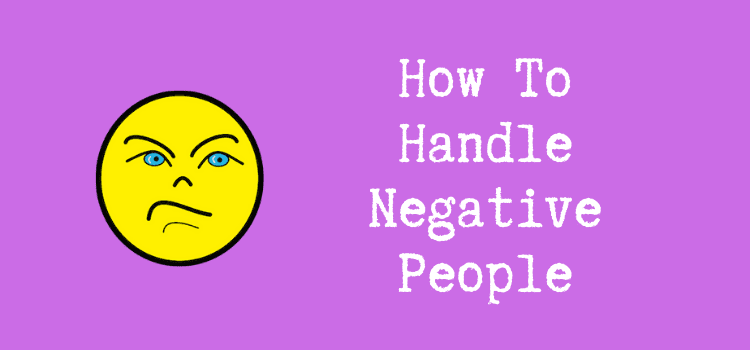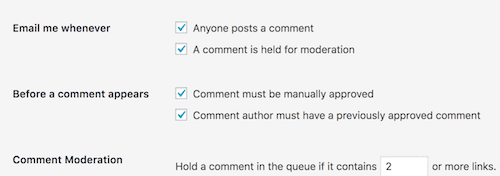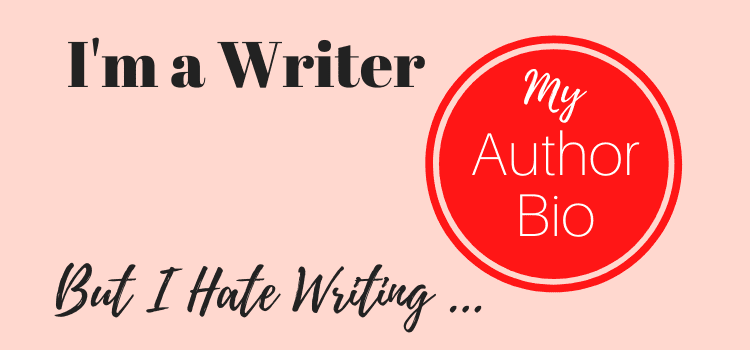
Your blog, books, and social media presence are all open targets for people with negative attitudes. So, you need to learn how to deal with criticism.
It is common to get petty and negative comments on your blog articles or harsh criticism of your books on Amazon.
Goodreads has had a checkered history. But a personal attack is still the weapon of choice for many of the infamous Goodreads trolls.
The word criticism means the analysis and judgment of the merits and faults of a literary or artistic work.
Negative people and how to deal with criticism
Sadly, you’ll find those who don’t look at the positive and negative aspects of a book.
Their preferred form of criticism is to get personal. For some weird reason, it feels good for them to insult.
Blog comments are a terrific means of interacting with readers and can be a source of positive energy.
But there are times when you can get nasty comments, making it tough to remain positive.
Social media was initially about connecting with friends and family members. But today, it is difficult to restrict who can communicate with you.
The online world is not populated with only rational and positive people. Luckily, great people are in the majority.
But there are a few people who have no idea of constructive criticism. They can make it tough for you to keep a positive attitude.
The only way to survive is to learn how to deal with criticism.
Here are a few ideas for you on how to keep your cool when dealing with negative people.
You need to learn how to deal with difficult people. Also, how to respond to unwelcome criticism.
Book reviews are rarely real book reviews
On most online book retailers, there is no heading saying book reviews. They are called Customer Reviews, Customer Feedback, or merely Comments.
You will hardly ever find anything approaching literary criticism in the form of a balanced seven-hundred-word book review.
What you will find are quick clickable star ratings and a point of view that seldom extends past ten words.
Customer reviews are in the same format as feedback on any product. It could be a hairdryer, lawnmower, or sports shoes on review sites.
So these have nothing to do with literary or artistic critique. People don’t spend time agonizing over what they say. It is; usually, I liked it, or I didn’t, and click a star.
Worse still is that people do not even need to buy a product to leave negative feedback.
I know that new authors can get very downhearted when they receive a silly, thoughtless, or nasty review. What makes it worse is that retailers like Amazon customer service usually refuse requests to delete them.
It might seem like all bad news, but it’s not.
The best way to handle these reviews is to ignore them.
It’s easy to say I know and hard to accept. But most people are not silly.
They will have the same reaction as you to an obviously baseless or nasty review.
The total number of reviews sometimes influences book buyers, but rarely by what a few fools have to say.
Another way to help reduce these silly reviews is to avoid forums such as Goodreads, some Facebook groups, or even Kboards. Trolls love discussion forums.
So reducing your exposure will make you far less of a target and help to fix the problem.
Controlling your blog comments
The more popular your blog becomes, the more chance you will have of getting whacky comments and online criticism.
You will also get a lot more comment spam. These comments can have a negative effect on your blog.
But you can manage these problems quite easily by setting boundaries. All you need to do is to change your settings so you can moderate all your comments.
On WordPress, the settings are in the Discussion tab. Similar parameters are an option on almost all blogging platforms.

It takes a little bit of extra time to check your email for new comments and approve them. But the upside is that you can keep your blog comments positive or at least reasonable.
Remember, it’s your blog, and it’s not an open forum for nasty people, spammers, and people with an axe to grind.
Never feel guilty about taking control and allowing only the comments you are happy to have on your blog.
It doesn’t mean that you are going to block every comment that disagrees with you. But you can keep it to sensible, rational, and productive criticism.
When you reply to comments, maintain your online image as a positive person. Never get into a heated debate or resort to any form of personal offense on your blog with a negative person, even if you feel awfully offended.
Remember, it’s your blog, and you always have the delete or trash button option for any unwelcome comments.
Social media is changing
Many people are thinking again about how they use Facebook, Twitter, and other platforms.
Privacy concerns are now top of mind, and the amount of time spent each day on social media is falling.
But, it is still a viable and necessary element in expanding your blog reach and book promotion.
Many authors and bloggers are changing from using social media personal profiles.
Instead, they are moving to business pages as better promotional tools.
It is a wise move to consider. Social media Pages offer you far more control, and they will reduce your personal exposure.
Are you using your personal profile and have a long list of friends you do not know?
Perhaps it’s time to do a stocktake. It can help you reduce the odds of getting negative interactions.
On Twitter, there are many options to block or hide users or to protect your account.
The best approach with social media is to cut off the avenues for users who are habitually negative or aggressive.
Summary
Everyone can have a bad day, so learning how to deal with criticism is simply a fact of life now.
It can be caused by a minor work dispute, a family argument, illness, or a tax bill in the post.
We all accept that anyone can have an off day.
Because we spend so much time online, it’s not unusual for comments and messages to occasionally reflect a temporary negative mood.
But some people lack a little emotional intelligence and are habitual in behaving badly.
Sometimes it is driven by jealousy, envy, or intolerance. Most often, though, it is purely attention-seeking.
Rewarding these people with attention is the worst option you can take.
As much as you would like to vent your spleen, the best response is no response. It will save draining your energy.
We all spend a great deal of time online nowadays.
The best way to spend it is to be positive and stay positive and learn how to deal with criticism.
And when you are offline, surround yourself with people who make you smile.
There is nothing to be gained from pandering to negativity.
Related Reading: Let’s Talk About Book Reviewers And How Book Reviews Work




Thank you. I had a poor review from an agenda-driven troll who totally distorted my third novel. She posted her diatribe on Amazon & Goodreads. I couldn’t let it stand, so ‘responded’ on Goodreads. An eye-opening mistake! ~ She, in turn, tweeted I was ‘harassing’ her. She then pulled the ‘victim’ card & got 150 likes. I couldn’t believe it. The pettiness, the off-kilter self-pity etc. Anyway, just to share now & AGREE with you. In future, I will not respond to these opportunists who seek to elevate their own ‘standing’ by pulling down others work. ~ Live & LEARN folks!
Sorry to hear you went through all that. But yes, it is a good example of how the mind works for trolls. It’s all about attention seeking. If you react, it’s exactly what they want. Hopefully you don’t get any more like this one.
What if an “amazon customer review” really isn’t a customer review but a direct attack? I have a restraining order on someone in my city. Now, his girlfriend has attacked me on line– I contacted Amazon 25 days ago to no avail yet. Is there anyway to get her posted attack removed? Do I need to mail legal documentation of her problem behavior to Amazon– would that help? I can’t wrap my head around how Amazon is okay with cyber stalking and physical endangerment (hey, there’s a book I could write!) How best to proceed with Amazon?
Good advise.
We all need to be reminded that “ugly” negative comments come from people who are not truly reviewing, they’re just being “ugly.” For the most part, I’ve found blog comments and Amazon reviews on my books to be honest and upbeat. Most of us know to not let a few ‘bad apples’ upturn the cart. I really appreciate this reminder of that adage.
Yes..Very true..I agreed… Thanks for healthy advice.
Derek, your advice is spot on.
Thank you for very sensible advice.